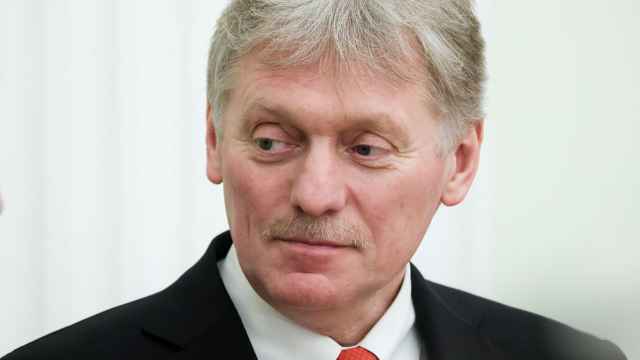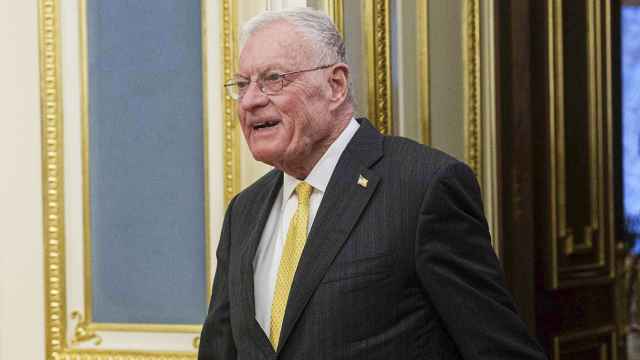The Finance Ministry said Tuesday it would buy 212.2 billion rubles ($6 billion) in foreign currency via the Central Bank through open market operations between Feb. 20 and May 31.
It said the move would not impact the Russian currency.
The ministry said the purchases would be fixed at 3.5 billion rubles a day. The funds are earmarked for the budget's $87 billion Reserve Fund, one of two sovereign funds financed from oil taxes.
Plans by the ministry to purchase foreign currency for the Reserve Fund have been a major factor weighing on the ruble in recent weeks. Earlier this month the ruble temporarily rallied when the finance ministry said that it would delay its purchases in order to ease the downward pressure on the currency.
At that time it said it planned to complete the purchases by April 1, a tighter deadline than envisaged in the final version of the plan announced on Tuesday.
The Central Bank's purchases on the open market will be factored into the bank's daily interventions.
"I think that this will not have a serious impact on the ruble," Deputy Finance Minister Alexei Moiseev told journalists, announcing the plan.
"The main goal of our actions is to ensure banking liquidity. This mechanism allows us not to decrease the amount of liquidity."
The Central Bank said that the volume of its daily forex market interventions would be adjusted to compensate for the increased purchases of foreign currency by the finance ministry, as would the amount of foreign currency interventions required to provoke a shift in the ruble's floating corridor.
The Central Bank spends $400 million a day to support the ruble when it is within 95 kopecks of the edge of a floating corridor against a dollar-euro basket, presently set at 34.70 to 41.70 ruble per basket.
When an intervention allotment of $350 million is spent, the Central Bank automatically shifts the corridor by five kopecks.
These amounts would be adjusted by $100 million per day as long as the finance ministry purchases are taking place, the Central Bank said.
"The indicated corrections in volumes of the Bank of Russia's interventions will not have a significant influence on the dynamics of the national currency," the Central Bank statement said.
The ruble fell in after-hours trade after the finance ministry and Central Bank statements. On Tuesday evening it was trading at a record low of 41.45 against the dollar-euro basket, down 0.9 percent on the day.
A Message from The Moscow Times:
Dear readers,
We are facing unprecedented challenges. Russia's Prosecutor General's Office has designated The Moscow Times as an "undesirable" organization, criminalizing our work and putting our staff at risk of prosecution. This follows our earlier unjust labeling as a "foreign agent."
These actions are direct attempts to silence independent journalism in Russia. The authorities claim our work "discredits the decisions of the Russian leadership." We see things differently: we strive to provide accurate, unbiased reporting on Russia.
We, the journalists of The Moscow Times, refuse to be silenced. But to continue our work, we need your help.
Your support, no matter how small, makes a world of difference. If you can, please support us monthly starting from just $2. It's quick to set up, and every contribution makes a significant impact.
By supporting The Moscow Times, you're defending open, independent journalism in the face of repression. Thank you for standing with us.
Remind me later.





